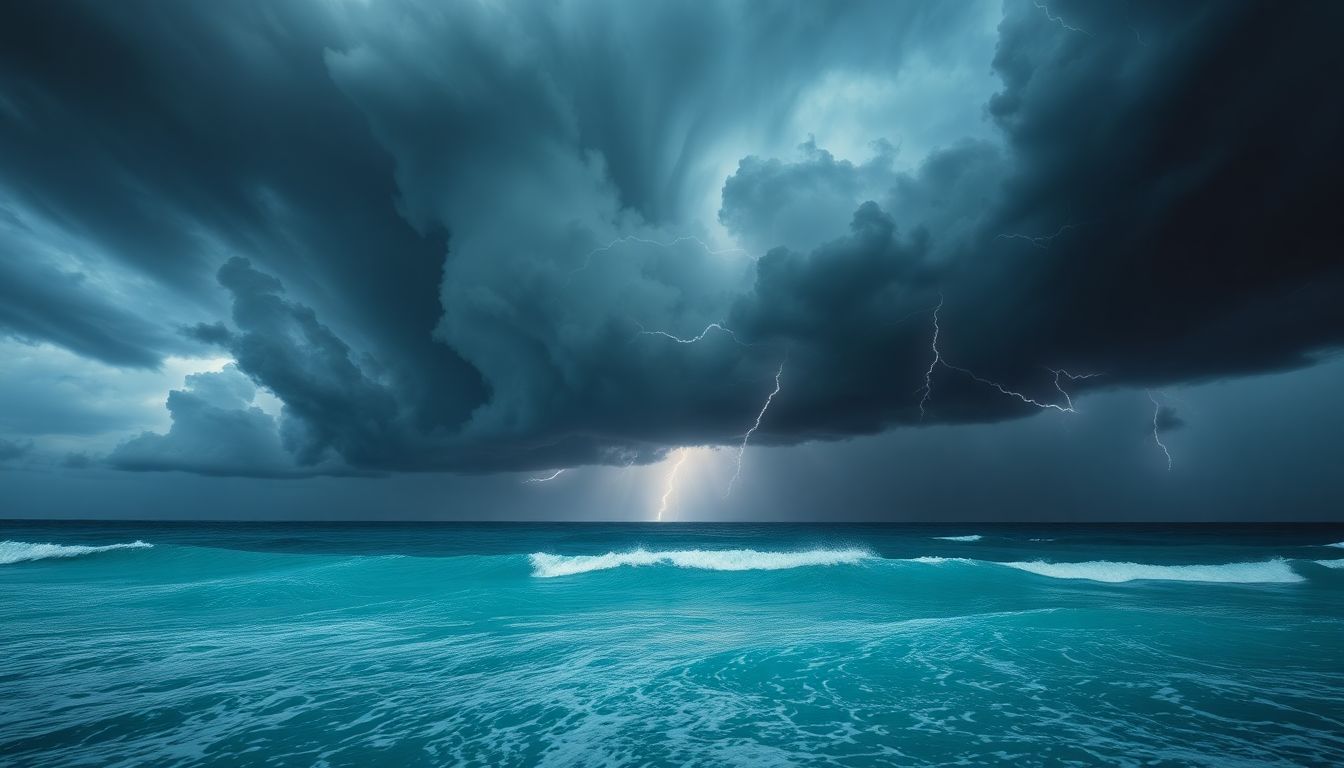
Tropical Cyclone Zelia: A Comprehensive Look at the Devastating Storm
Tropical Cyclone Zelia left a significant mark on the regions it impacted, showcasing the immense power of nature. This article examines the formation, impact, and lessons learned from Cyclone Zelia, which struck during its devastating path in the summer of 2023.
Formation and Development of Cyclone Zelia
Meteorological conditions leading to formation
Tropical Cyclone Zelia formed under specific atmospheric conditions that fueled its growth. Key factors included:
- Low atmospheric pressure: Essential for cyclone creation.
- Warm sea surface temperatures: Higher temperatures provide the necessary energy.
- Low wind shear: Allows the cyclone to maintain its structure.
Charts indicate that when sea surface temperatures reached above 26°C, Zelia began to intensify rapidly, showcasing typical cyclone development patterns.
Intensification and track
Cyclone Zelia followed a specific track that saw it intensifying from a tropical depression to a strong cyclone in just a few days. Maps illustrate Zelia’s trajectory across the ocean, impacting several coastal regions.
Forecasting challenges and accuracy
Meteorologists faced hurdles in predicting Zelia’s path. Initial forecasts expected a weaker storm, but it intensified quickly. Challenges included:
- Rapid shifts in wind patterns
- Inaccurate modeling of atmospheric conditions
- Limited satellite coverage in certain areas
Despite these hurdles, many forecasts adjusted and improved as the cyclone approached land.
Impact and Devastation Caused by Cyclone Zelia
Human impact: casualties, injuries, and displacement
The human cost of Cyclone Zelia was substantial. Official reports noted:
- Casualties: Hundreds of lives lost
- Injuries: Thousands were injured
- Displacement: Over 100,000 people were forced to evacuate
These statistics highlight the cyclone's devastating toll on communities.
Infrastructure damage: buildings, transportation, and utilities
Zelia caused widespread destruction, with reports indicating extensive damage to:
- Buildings: Many homes were flattened.
- Transportation: Roads became impassable, exiting areas became difficult.
- Utilities: Power outages lasted for days in several regions.
Areas like coastal towns faced the brunt, suffering from severe infrastructural damage.
Economic consequences: losses and recovery efforts
The financial impact was staggering. Estimates suggest multi-billion-dollar losses due to:
- Property damage: Homes and businesses wiped out.
- Insurance claims: Thousands of claims filed, straining resources.
- Government aid: Emergency funds were allocated for recovery.
Local economies faced long recovery periods as they rebuilt.
Response and Relief Efforts Following Cyclone Zelia
Immediate response: evacuation, search, and rescue
In the wake of Cyclone Zelia, immediate responses included:
- Evacuating residents from high-risk areas
- Launching search and rescue operations for those trapped
- Mobilizing local emergency services
While many operations were successful, some faced challenges due to damaged infrastructure.
International aid and support
The global response included aid from numerous countries and organizations. Notable contributions involved:
- Financial assistance: Governments pledged funds for recovery.
- Supplies: Food, water, and medical supplies were dispatched.
- Rescue teams: International teams arrived to assist local efforts.
This solidarity showed the strength of global cooperation in crisis situations.
Long-term recovery and rebuilding
Recovering from Zelia required sustained efforts. Ongoing initiatives included:
- Rebuilding homes and public facilities
- Implementing new infrastructure projects
- Engaging communities in recovery processes
These efforts aimed to restore normalcy and enhance resilience against future storms.
Lessons Learned from Cyclone Zelia: Future Preparedness
Improving forecasting accuracy and early warning systems
One key takeaway from Cyclone Zelia is the need for better forecasting. Experts suggest:
- Enhanced data collection: Use advanced technology for real-time tracking.
- Improved models: Develop more reliable predictive models.
- Better communication: Ensuring timely alerts to the public.
These steps could significantly reduce future risks.
Strengthening building codes and infrastructure resilience
To mitigate future cyclone effects, improvements in building codes are crucial. Recommendations include:
- Stricter regulations: Ensure that all new buildings withstand high winds and flooding.
- Disaster-resistant designs: Use materials that can endure severe weather conditions.
Success stories from other regions highlight the effectiveness of such measures.
Enhancing community preparedness and disaster education
Preparing communities is vital for effective response. Strategies for improvement include:
- Education programs: Teach residents about cyclone risks and responses.
- Community drills: Practice evacuation and emergency plans.
- Resource availability: Ensure access to emergency supplies and information.
These efforts foster a culture of preparedness and resilience.
Conclusion: The Lasting Legacy of Cyclone Zelia
Tropical Cyclone Zelia serves as a crucial reminder of nature's unpredictability and power. The impacts were severe, affecting lives, infrastructure, and economies. Understanding and preparing for such events is indispensable for future generations. The resilience of affected communities stands as a testament to human spirit and determination in the face of adversity.